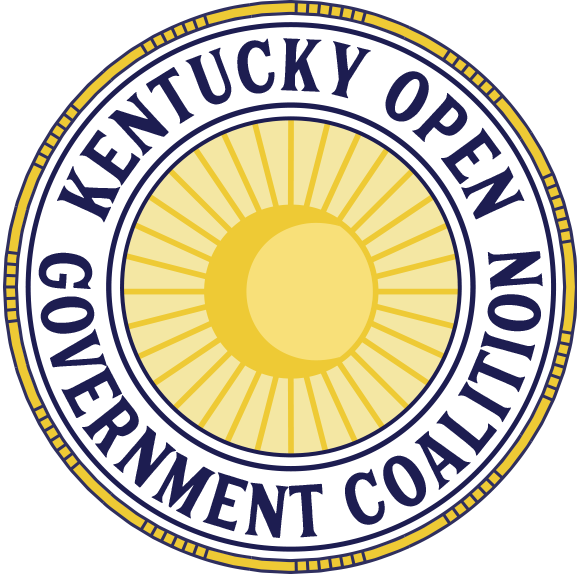
The Kentucky Attorney General recently issued an open meetings decision in an appeal pitting James Orlick against the House Standing Committee on Postsecondary Education. In a March 11 complaint, Orlick alleged that the committee violated the law when it conducted a vote on a title amendment to HB 4 after the committee adjourned.
The committee ignored Orlick’s complaint. On March 25, he submitted an appeal to the Office of the Attorney General, identifying two open meetings violations: illegal post-adjournment action and failure to respond.
A RESULT DRIVEN OUTCOME TO THE OPEN MEETINGS APPEAL
The resulting open meetings decision, 25-OMD-097, is a “split decision.” In it, the Attorney General has no trouble determining that the committee, chaired by Representative James Tipton, violated the open meetings law when it failed to respond to Orlick’s open meetings complaint. However, the Attorney General avoids deciding the issue that prompted Orlick’s complaint by characterizing the committee’s post-adjournment vote on the title amendment to HB 4 as
“its own legislative procedure” which the Attorney General “lacks jurisdiction” to review under the open meetings law.
THE ATTORNEY GENERAL DEPARTS FROM DECADES-LONG INTERPRETATION OF THE OPEN MEETINGS TO DEFER TO “LEGISLATIVE PROCEDURE
So where, then, does the legislature’s statutory duty under the open meetings law end, and where does “its own legislative procedure” begin? Is the Attorney General only permitted to rule on the legislature’s failure to respond to an open meetings complaint? Is everything else non-reviewable because it is “its own legislative procedure” and therefore sacrosanct.
If so, the Attorney General’s decision represents a dramatic departure from decades of interpretation of his statutory duties, a thinly veiled evasion, and a dangerous precedent. No other attorney general, to the best of my knowledge, shrank from his statutory duty based on deference to “legislative procedure.”
This is because it was the legislature which, in 1992, assigned the duty to the Attorney General to “review the [open meetings] complaint and [public agency] denial and issue within ten (10) days, excepting Saturdays, Sundays, and legal holidays, a written decision which states whether the agency violated” the open meetings law. The law did not then, nor does it now, exclude the Kentucky General Assembly. That statute, KRS 61.846(2), has not been amended since 1992.
https://apps.legislature.ky.gov/law/statutes/statute.aspx?id=23054
As recently as 2017, the Attorney General determined that the House of Representatives violated the open meetings law when it locked its doors to the media and the public to conduct a closed discussion of the full House membership to discuss an analysis of a pension reform bill that was the brainchild of then-Governor Matt Bevin.
In In re: Bluegrass Institute for Public Policy Solutions/Kentucky House of Representatives, former Attorney General Andy Beshear rejected separation of power arguments similar to those raised here to affirm the House’s violation of the open meetings law. In the House appeal of the Attorney General’s decision, the Franklin Circuit Court rejected legislative immunities arguments similar to those raised here, to affirm Beshear’s decision.
https://www.ag.ky.gov/Resources/orom/2017/17OMD228.doc
https://static1.squarespace.com/static/5f986190ec1e7d424e58d7f2/5fc51b0…
WHY A SPLIT DECISION
That Attorney General Coleman gets it half right — by declaring the committee’s failure to respond to Orlick’s complaint a violation of the open meetings law — is even more confounding. Especially when he goes outside the four corners of the committee’s well-worn arguments — which boil down to “mootness” and legislative immunity — to deny jurisdiction in the appeal because it involves the legislature’s “own legislative procedure.”
Is 25-OMD-097 result driven? It’s a fair question.
Incidentally, a copy of the committee’s response to Orlick’s appeal was not shared with Orlick until after the Attorney General issued the decision and Orlick asked for a copy. This omission ignores the directive, found at 40 KAR 1:030(2), to “send a copy of the response to the complaining party.” It placed him at a severe disadvantage. He received no response to his complaint, had no idea what arguments the committee raised in defense of its actions on appeal, and had no opportunity to respond.
https://apps.legislature.ky.gov/law/kar/titles/040/001/030/
The legislative committee’s arguments, it turns out, failed to convince the Attorney General. He instead focused on the limits of his own statutory authority in the open meetings decision.
Quoting Bevin v. Commonwealth ex rel. Beshear (2018), the Attorney General argued:
“Where the rules of parliamentary procedure are not specifically prescribed by the Constitution, the General Assembly alone may decide what procedures it will apply during the legislative process and whether those procedures have been followed. The General Assembly’s ‘sphere of
authority’ includes determining when a meeting of a standing committee has been adjourned, and whether a quorum of the Committee may continue to conduct its legislative business when its chairman inadvertently announced that the meeting
was adjourned before the Committee’s business was completed.
“Just as the rules of legislative procedure are ‘beyond [the Court’s] sphere of authority,’ those rules also are beyond this Office’s jurisdiction under the [open meetings] Act.”
https://caselaw.findlaw.com/court/ky-supreme-court/1966992.html
The analogy to the Bevin case is flawed. The General Assembly statutorily submitted itself to the open meetings law, and Attorney General review of its compliance with those laws, in 1992. That law assigning those duties, KRS 61.846, is entirely unchanged since 1992.
Compliance with the open meetings law is premised on “maximizing notice to the public of an agency’s meetings and actions.” No one has suggested until now that the adjournment was inadvertent, a suggestion that is directly contradicted by the committee chair’s question whether enough members remained in the room for a vote on the title amendment. Members had left the committee room. Attendees had been ask to leave, and many had. Notice of a new meeting was, and is, fundamental to full public participation and compliance with the open meetings law.
https://kyopengov.org/law/court-decisions/floyd-county-board-education-…
This is not a situation — assuming one exists — where the Attorney General must decline jurisdiction because it focuses on “the legislature’s own legislative procedure. It is, clearly and unambiguously, an open meetings question — subject to review by the Attorney General under a grant of statutory authority from the legislature. What happened the following day to correct the legally ineffective post-adjournment vote on HB 4’s title amendment is, arguably, a question of legislative compliance with its own procedures. We concede nothing more.
https://apps.legislature.ky.gov/law/statutes/statute.aspx?id=23054
YIELDING MORE AUTHORITY TO THE LEAST ACCOUNTABLE PUBLIC AGENCY TO HOLD ITSELF ACCOUNTABLE
How much more authority will we permit elected officials to surrender to the General Assembly — the least accountable branch of government as it already is — so that it becomes the sole arbiter of its actions. Does anyone seriously believe it is capable of doing so?
In the final analysis, is it heresy to suggest that the General Assembly should simply remove itself from the open meetings law — as it removed itself from the open records law in 2021. It might be the first intellectually honest action it has taken in many years.
